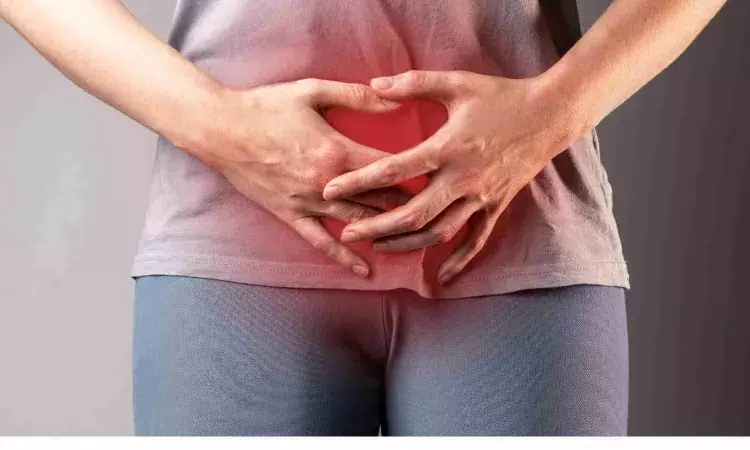- Home
- Medical news & Guidelines
- Anesthesiology
- Cardiology and CTVS
- Critical Care
- Dentistry
- Dermatology
- Diabetes and Endocrinology
- ENT
- Gastroenterology
- Medicine
- Nephrology
- Neurology
- Obstretics-Gynaecology
- Oncology
- Ophthalmology
- Orthopaedics
- Pediatrics-Neonatology
- Psychiatry
- Pulmonology
- Radiology
- Surgery
- Urology
- Laboratory Medicine
- Diet
- Nursing
- Paramedical
- Physiotherapy
- Health news
- Fact Check
- Bone Health Fact Check
- Brain Health Fact Check
- Cancer Related Fact Check
- Child Care Fact Check
- Dental and oral health fact check
- Diabetes and metabolic health fact check
- Diet and Nutrition Fact Check
- Eye and ENT Care Fact Check
- Fitness fact check
- Gut health fact check
- Heart health fact check
- Kidney health fact check
- Medical education fact check
- Men's health fact check
- Respiratory fact check
- Skin and hair care fact check
- Vaccine and Immunization fact check
- Women's health fact check
- AYUSH
- State News
- Andaman and Nicobar Islands
- Andhra Pradesh
- Arunachal Pradesh
- Assam
- Bihar
- Chandigarh
- Chattisgarh
- Dadra and Nagar Haveli
- Daman and Diu
- Delhi
- Goa
- Gujarat
- Haryana
- Himachal Pradesh
- Jammu & Kashmir
- Jharkhand
- Karnataka
- Kerala
- Ladakh
- Lakshadweep
- Madhya Pradesh
- Maharashtra
- Manipur
- Meghalaya
- Mizoram
- Nagaland
- Odisha
- Puducherry
- Punjab
- Rajasthan
- Sikkim
- Tamil Nadu
- Telangana
- Tripura
- Uttar Pradesh
- Uttrakhand
- West Bengal
- Medical Education
- Industry
Frequent urinary incontinence in women tied to higher risk of bigger health issues, including disability

USA: A recent study published in Menopause has revealed a strong association of urinary incontinence (UI) with multiple domains of disability, including mobility and interacting with others, after about 3.7 years. Thus, UI may be a critical factor limiting social engagement among women.
The new research suggests that if you are one of the 30% to 50% of women experiencing urinary incontinence, it could turn into a bigger health issue. The RUSH researchers showed that having more frequent urinary incontinence and leakage amounts is associated with higher odds of disability.
“Often symptoms from urinary incontinence are ignored until they become bothersome or limit physical or social activities,” said Sheila Dugan, MD, chair of the Department of Physical Medicine and Rehabilitation at RUSH. “Because this study suggests that urinary incontinence is associated with disability, exploring treatment options in the early stages may help decrease this outcome in midlife women.”
Urinary incontinence affects many women at some point during their lifetime, she said. Some women will leak urine when they sneeze or cough, which is called stress incontinence.
“When you sneeze or cough, there is a mechanical pressure from your belly that overwhelms the sphincter and you leak,” she said.
Others suffer from urge incontinence, which is an overwhelming urge to urinate, such as when they get close to a restroom. Women who experience both have what’s called mixed urinary incontinence, Dugan said.
Researchers considered the amount and frequency of the incontinence and whether the study participant had stress incontinence, urge incontinence, or both.
Researchers then measured disability by the World Health Organization disability assessment scale as the outcome of interest.
“We found that mixed incontinence was the most highly correlated with disability, along with daily incontinence and larger amounts of incontinence,” Dugan said.
Dugan helped create the Program for Abdominal and Pelvic Health at RUSH, which treats several types of conditions, including urinary incontinence. Each patient is examined to determine the causes and treatment options. For example, muscles are evaluated to uncover whether tight bands in the muscles are causing incontinence or whether weak muscles are to blame.
“In a case of tight muscles, a woman may try to tighten the muscles further with more exercise, not knowing that it may make the incontinence worse,” Dugan said. “Pelvic floor muscles support pelvic organs and organ problems can lead to muscle problems or vice versa. One patient may have incontinence due to hip arthritis, another from a difficult delivery, or it can be caused by cancer treatment, for example, radiation in the pelvic area.”
There are several potential causes, or even a combination of causes, of incontinence. The data used was from a larger clinical trial called SWAN (the Study of Women Across the Nation) that included more than 1,800 participants. SWAN was initiated in 1994 with seven sites across the U.S. to identify changes that occur during the menopause transition in midlife women and their effects on subsequent health and risk for age-related diseases.
“More studies are needed to show what causes this association, with a focus on prevention,” Dugan said.
Reference:
Sheila A. Dugan, Sybil L. Crawford, Karla Wente, L. Elaine Waetjen, Carrie Karvonen-Gutierrez, Siobán D. Harlow. The association of urinary incontinence and disability among a diverse sample of midlife Study of Women’s Health Across the Nation women. Menopause, 2024; 31 (1): 18 DOI: 10.1097/GME.0000000000002282.
Dr Kamal Kant Kohli-MBBS, DTCD- a chest specialist with more than 30 years of practice and a flair for writing clinical articles, Dr Kamal Kant Kohli joined Medical Dialogues as a Chief Editor of Medical News. Besides writing articles, as an editor, he proofreads and verifies all the medical content published on Medical Dialogues including those coming from journals, studies,medical conferences,guidelines etc. Email: drkohli@medicaldialogues.in. Contact no. 011-43720751


